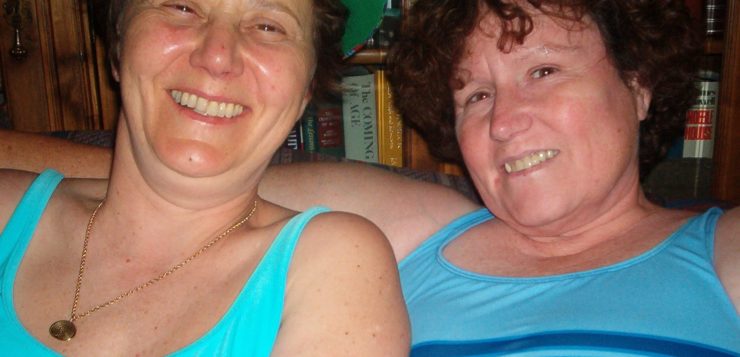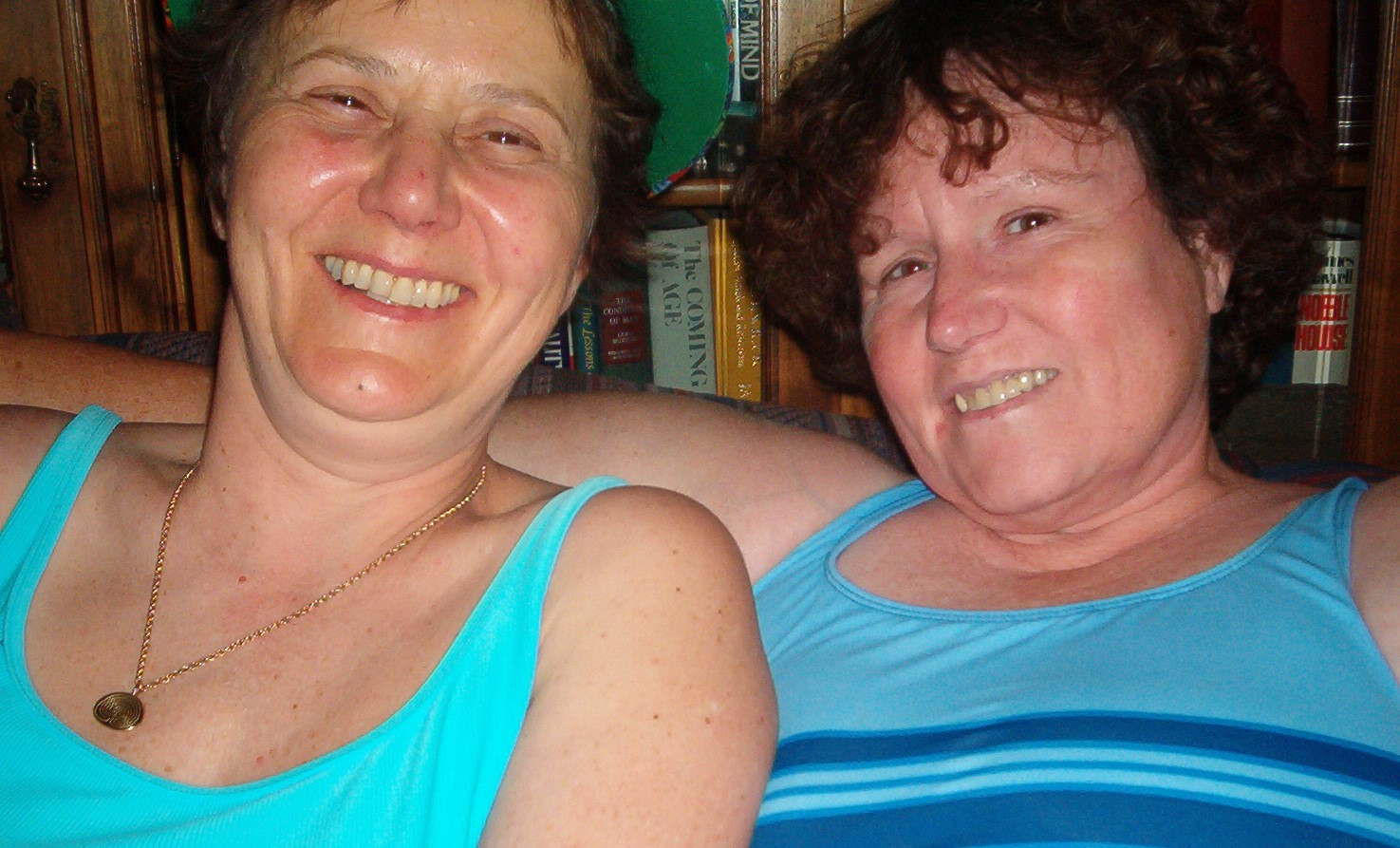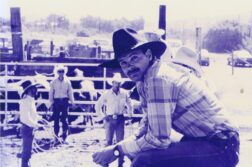I was handed an unwanted intimacy with death. It began as I held my dearest sister while she lay dying in my lap. I was at her home the morning she died, just a week after her 59th birthday, July 2005. She’d gotten up to pee in the early morning and I took the opportunity to crawl into her bed. I propped myself up on her large pillow shams, my feet thrust out in front of me, and her husband nestled her in my lap. I knew it was the end. As I held her, I knew I was experiencing eternity, a moment of grace, to hold her as she took her last, peaceful breath.
She died of lung cancer less than five months post-diagnosis. Alexandra Elizabeth, Lexi for short, two years my senior, who wiped my bottom in nursery school and always guided me, listened to me, loved me unconditionally, and slowly slipped away, dying peacefully in my arms.
Less than six months after holding Lexi, I had come home after work to find my wife of eighteen years, Margaret, slumped over our bed, her feet dangling off the side, blue and cold to the touch. I couldn’t bear to touch her face, buried under her beautiful, dark chestnut hair, deep in her pillow. Absolutely no warning, no good-byes. It was a sudden cardiac arrythmia.
She hadn’t come into work that day and I made lame excuses to her patients. I’d called her cell phone, but reception was often spotty in rural Mendocino County. I called the home landline. It was clear something terrible had happened, but I’d been schooled to speculate about the negative and couldn’t leave my own appointments to drive the thirty miles back home. Finally able to leave work, driving in the cold dark early evening of Mendocino County’s January bitter fog, I was enveloped by dread and an awful feeling in my gut.
I didn’t know I would again become death’s witness and companion. The two most important people in my life were gone. My soul festered with abject pain and grief. I couldn’t sleep and could barely eat. I was being dragged through hell, inch by torturous inch, each unending minute of every day.
Margaret’s memorial service was held two weeks after her passing. I held, hugged, cried with, and tried to console the nearly 200 mourners in attendance. Margaret was a pillar in her professional community. She was an esteemed child custody mediator, and often gave expert witness testimony in court.
The service wore on, and it was hours before my brother and his wife took me home. I limped up the front stairs only wanting to eat and sleep. But the dagger of death that tore my heart was violently twisted to inflict, inconceivably, an even more unbearable pain—her family.
Shortly after I got home, Margaret’s large family—her five sisters and brother, with their spouses—invaded our home. No greeting, no “hello”; they sprawled out into every room of our 2,000-square foot home, and looked through Margaret’s baseball card, coin, pen, and collections and pocketed what they wanted.
I stood mute in the kitchen, unable to stop them, unable to tell them to STOP! They had no right! This is my house; it was our house. I was speechless; I couldn’t believe what I was seeing. I was drained of all strength, dead inside. And because I just wanted to die, wanted to join Margaret in death, a piece of me just didn’t care anymore.
As if he family wasn’t satisfied with the things they could easily pick up and pocket, as if their greed wasn’t slackened, the moving van appeared in the driveway. Margaret’s ex-husband had left the memorial service early and rented a thirty-foot van. They made short work of taking all of her bedroom furniture, home office furniture, computer, TV, large antique bookcase with her books, and loaded it all into the moving van.
Then they all left. Their dark cloud of evil suddenly disappeared, just as quickly as it had arrived. They never spoke to me. Totally ignored, disrespected, and violated me. And I have not forgiven.
I’ve learned that what happened to me happens to many of us after our same-sex partners, lovers, and spouses die. Their families disrespect and violate us. They never honored the relationship, never wanted their relative to live a proud, out life. Their hatred and revenge comes after death. We are left shattered first by the loss of our loved one, then again by the actions of their family.
I wrote my book, Overcoming Deepest Grief: A Woman’s Journey to save my life. I had to write it or else I would have committed suicide. I wrote for myself, but I tell my story, our story, the story of what LGBTQ folks deal with after the death of their loved ones. The world is unaware of the horror that families inflict—the sheer plunder of our loved ones’ material goods, and the plunder of our hearts.
I want the world to know.
 Mary Aviyah Farkas holds a M.S. degree in Nutrition from Tufts University, and a M.A. degree in Counseling Psychology from the University of San Francisco. She is a writer and author of the award winning Overcoming Deepest Grief, A Woman’s Journey and Docent at the Holocaust Museum Los Angeles.
Mary Aviyah Farkas holds a M.S. degree in Nutrition from Tufts University, and a M.A. degree in Counseling Psychology from the University of San Francisco. She is a writer and author of the award winning Overcoming Deepest Grief, A Woman’s Journey and Docent at the Holocaust Museum Los Angeles.







